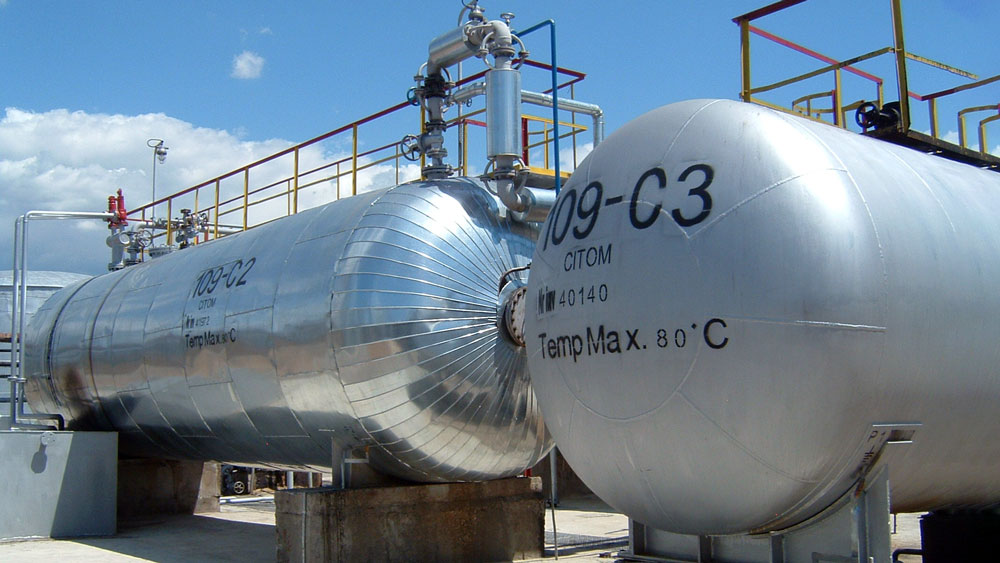Bitumen Production in Romania, ‘non-existent’ or Historic High?
Romanian economy has been seriously affected by the crisis generated by the new coronavirus and works at major infrastructure projects have been put back on the table by authorities. As if we’ve been leaders in this regard so far. On the contrary. We don’t plan to analyse here and now the reasons, but something else has caught our attention in full pandemic: bitumen production in Romania.
The COVID-19 crisis has strongly hit society on all levels, but one of the areas that remained ‘standing’ was that of roads and highways construction. The construction sites worked, but there were also shortcomings from several points of view.
“The crisis situation will change us significantly in the construction industry as well. In this period, if we talk about shortcomings in construction, related to suppliers, we noticed we no longer have a domestic construction industry. Only during a crisis situation like the current one can we realize that some basic construction materials that we could have produced in Romania we do not produce,” said Mariana Ionita, Director of the National Company for Road Infrastructure Administration (CNAIR).
“I realize that many companies activating in the construction materials industry will refocus on other fields. Even the strategy of governments will change, by encouraging the development of domestic production. I will give you an example: bitumen. We are a country that has some or the largest refineries in the area of South-Eastern Europe and we don’t have an industry to produce bitumen and we had to sit and wait for loaded trucks to come from Poland, Ukraine or other states. This is not ok,” the head of CNAIR said.
According to her, the state could focus more on domestic production and during the crisis period both authorities and constructors realized that project-based work can be carried out. “It is vital for infrastructure to be executed. We realized how good it is in crisis moment to have an infrastructure allowing you to move fast – especially if we are talking about goods and products,” Mariana Ionita also mentioned.
However, we had a record bitumen production in Romania in 2019!
In reply, the officials of Rompetrol, which operates Vega Refinery in Ploiesti, the only bitumen producer in Romania, says bitumen production in 2019 was 120,000 tons, the largest production in history, larger than the previous record reached in 2018, when Vega refinery produced 102,000 tons of bitumen.
Last year’s production accounts for approximately 25% of total bitumen consumption in Romania. For the near future, the company considers several investments, bitumen related, and the most important project is that of purchasing a bitumen incinerator, an investment of over USD 3.5mln, as it results from the investment plan of Rompetrol Rafinare for 2020, plan available for the public on www.rompetrol-rafinare.ro
Produced for 13 years!
Rompetrol Rafinare produces, at Vega Ploiesti refinery, a polymerized bitumen, since August 2007. A viscous or semi-solid product resulting from the distillation process of the raw material, bitumen is used primarily for road works, where it acts as a binder for particular aggregates to create asphalt. Rompetrol produces a wide range of bitumen types, with specifications adapted for an equally wide range of applications: from light-duty traffic roads to heavy-duty traffic roads, polymer-enriched bitumen for enhanced elasticity, as well as bitumen for waterproof roofing.
The investment for the modified bitumen plant amounted to over USD 7 million and was achieved with own funding. The equipment has a 60,000 tons/year output capacity and works were carried out by Rominserv, the general contractor of The Rompetrol Group. The original technology conceived by Rompetrol and technical novelties cleared the way for a patent filed with OSIM and held by the company.
The polymer-modified bitumen produced by Vega displays improved elasticity and superior resistance to wear and temperature variations. Moreover, the asphalt layer achieved with the product enjoys a 50% longer lifespan, maintenance costs are cut down by half, resistance to permanent deformation is improved by 85%, and, additionally, it can decrease traffic noise by up to 20%, in line with the solution selected by the constructor.
Also, regarding bitumen, in 2017, Alexey Golovin, CO Legal and Corporate Affairs within KMG International, said: “we are analysing this project and increasing bitumen production capacity could be submitted for debate”. This idea was resumed last year, at the anniversary of the 40 years of Petromidia.
Instead of conclusion
Therefore, is it a lack of information or training of the CNAIR director who said bitumen was no longer produced in Romania, or was it intended to be a well-sounding headline in the media? Neither is good for the real situation in the field.







